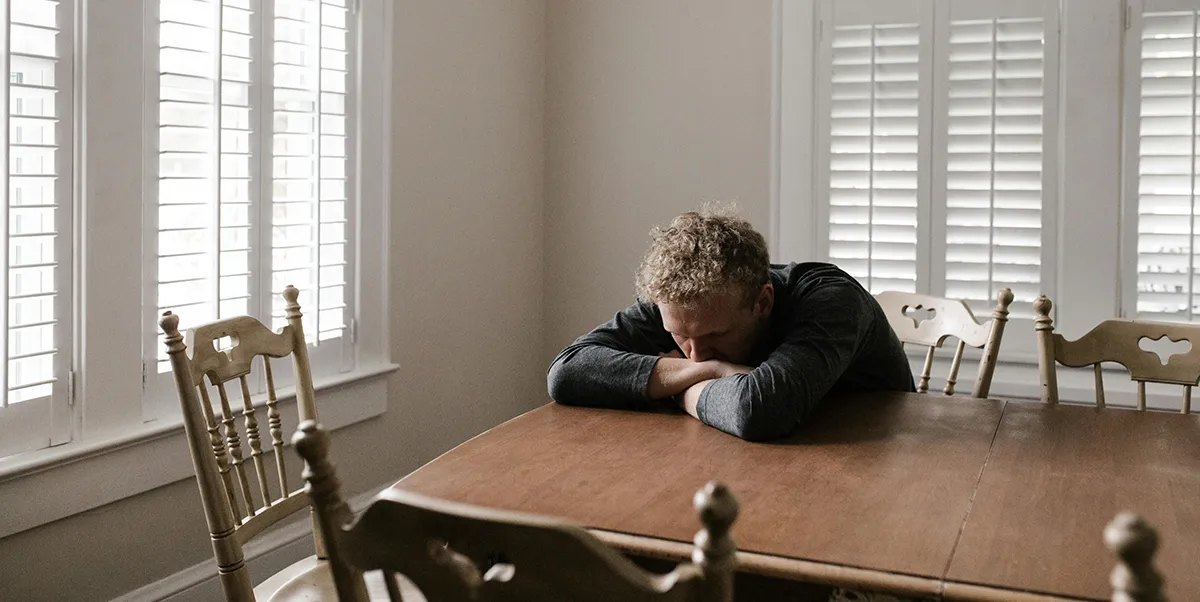There are several different terms used to refer to a state of poor mental health, and they can sometimes be used interchangeably. One of the most important terms to understand is ‘psychosocial disability’ and the ways in which it differs from other more general terms like ‘mental illness,’ ‘mental health condition,’ and ‘mental health issue.’
In this article, we’ll look at the specific differences between mental health and psychosocial disability, and where you can get support for different types of mental health issues.
What is a Mental Health Condition?
A mental health condition is a psychological condition which can negatively impact your state of mind and mental function if not properly managed. It could be temporary, such as anxiety that’s linked to a certain situation in your life, or it could be chronic (ongoing), like bipolar disorder, for example.
Mental health conditions can include mental illnesses or disorders like:
- Anxiety disorders
- Bipolar disorder
- Schizophrenia
- Obsessive-compulsive disorder
- Severe and persistent depression.
Mental health involves a spectrum from from well-being to severe mental illness, and we all move along this spectrum throughout our lives. This is called the mental health continuum model.
Well-being means a person is able to have constructive relationships, work productively, participate in their community and cope with the normal stresses of life.
Someone can have a mental illness and still achieve mental well-being when their condition is well managed. This is what we refer to as ‘recovery’. Recovery doesn’t mean that the condition is gone forever.
Mental well-being can fluctuate throughout a mental illness, as many mental health conditions are episodic, meaning their severity can increase and decrease over time.

What is Psychosocial Disability?
Psychosocial disability is a type of disability that arises from a mental illness or condition. Whether or not a person is considered to have a psychosocial disability depends not on a diagnosis of mental illness but on a person’s functional ability – the impact of their condition on their everyday life.
A psychosocial disability is about how a mental health condition interacts with someone’s social environment and impacts their ability to function. Poor mental health may lead to challenges with communication and social inclusion, finding suitable housing and employment and maintaining physical health. This when we might consider that a person has a psychosocial disability.
Psychosocial disability can vary and affect people differently, and not everyone who has a mental illness will also have a psychosocial disability.
Any type of mental illness or condition can lead to a psychosocial disability – it’s the impact, not the diagnosis that’s important. Impacts of a mental illness that may suggest a psychosocial disability include:
- Difficulty getting and keeping a job
- Difficulty maintaining relationships and social life
- Difficulty consistently keeping up with everyday household and personal tasks.
Psychosocial disabilities differ from some other types of disabilities because they are not visible to other people and defining psychosocial disability can be difficult. This means psychosocial disability is often misunderstood, and the stigma associated with psychosocial disability can be as difficult to live with as the condition itself.
An estimated 1.1 million Australians are living with a psychosocial disability.

Understanding the Difference
Key Differences Between Psychosocial Disability and Mental Health
- Mental health issues can lead to psychosocial disability, but they are not the same thing. Not everyone with a mental illness will experience psychosocial disability, but those who do can experience severe effects and social disadvantage.
- A psychosocial disability involves a ‘significant impact’ to a person’s life and is ‘likely to be permanent,’ whereas the impact of a mental health issue or illness is more manageable and may not be permanent. This does not mean mental health conditions which do not lead to psychosocial disability are easy to live with (far from it!), it just means they are not considered disabilities.
- Mental health conditions, while distressing to live with and harmful if not addressed, can be treated through the mental health system with medication and therapeutic interventions (like psychology, counselling, or occupational therapy) to reduce their impact and enable a person to live in a productive and fulfilling way.
Intersection Between Psychosocial Disability and Mental Health
Of course, there is a significant area of overlap between mental health conditions and psychosocial disabilities, in terms of both symptoms and the challenges they create. So it can be difficult to know exactly when a mental health issue becomes a psychosocial disability.
The most important thing is to get proper diagnosis and support for the symptoms of a mental health condition. Your treating professionals can then provide more advice on whether your condition may be considered a psychosocial disability, and whether you may be eligible for disability support under the National Disability Insurance Scheme.
Accessing Support
Immediate Mental Health Support
- If you or someone you know needs immediate mental health support, visit Lifeline or call the 24/7 crisis support line 13 11 14.
- For emergencies, call triple zero (000).
Long Term Support For Mental Health
Mental health conditions are highly treatable, with a range of mental health care treatment approaches available. This means you will be able to find the right one that works for you – so if you haven’t had great success in the past, be persistent and keep trying. (therapy, medication, self-care)
Some effective options include:
- Recovery coaching – recovery coaches work collaboratively with you to develop a personalised recovery plan, build capacity, and connect with relevant support services.
- Counselling – counsellors create a safe space for you discuss your challenges, explore options, develop strategies to overcome barriers and sort through conflict, process experiences and create new perspectives.
- Occupational therapy – mental health occupational therapists specialise in helping you with practical solutions to overcome physical, psychological, and behavioural challenges in everyday life.
- Psychology – clinical psychologists offer psychological therapies including cognitive behaviour therapy, interpersonal psychotherapy and dialectical behaviour therapy.
- Medical treatment – your GP plays an important role in helping you to manage your overall health care, which definitely includes your mental health care. Your GP will also know when to refer you to other types of medical specialists, like a psychiatrist.
- Healthy lifestyle – mental health is significantly affected by lifestyle factors, including diet, sleep patterns, exercise and use of alcohol and other drugs. Working on healthy habits can make a big difference to your mental health.
- Social and community – your personal relationships and social interactions are an important part of mental wellness. Family and friends not only provide important social interaction, they are also your essential support network for both practical and emotional support. Community participation, for example, in sport, interest groups or religious groups, has also shown to be highly beneficial for mental health and well-being.
National Disability Insurance Scheme (NDIS) Support for Psychosocial Disability
If your mental illness is permanent and significantly affects your ability to manage day-to-day activities, you may have a psychosocial disability and be able to apply for NDIS-funded supports.
Overview of the NDIS
- The National Disability Insurance Scheme (NDIS) is an Australia-wide scheme that assists people with disability, including psychosocial disability.
- The NDIS provides funding directly to eligible people with psychosocial disability to purchase necessary services like assistance with daily life, transport, social and community participation, funding for disability-related consumables, assistive technologies, home modifications and therapeutic supports focussed on functional improvement.
- Around 63,500 NDIS participants have psychosocial disability listed as their primary diagnosis.
Eligibility Criteria for Psychosocial Disability
- To be eligible for the NDIS, an individual must:
- be under 65 years old and an Australian citizen, permanent resident, or New Zealand citizen with a Protected Special Category Visa.
- have a severe and enduring mental health condition that results in significant functional impairment (difficulty doing daily tasks) that requires ongoing support to help you with these daily activities.
The important part is demonstrating that your mental illness results in a ‘functional impairment’ and that you need support for everyday tasks.
The illness can be ongoing or episodic but you also need evidence that it is likely to be with you for life. Your specific support needs might fluctuate but it is likely that you will require ongoing supports. If you only need support periodically, you may not meet the NDIS eligibility criteria.
If accepted onto the NDIS, you will receive an NDIS plan outlining the support you are funded to receive. Then, when you need to pay for funded support services or items, these can be paid for out of your plan funding.

Conclusion
Mental health is dynamic and most people will experience periods of mental ill-health throughout their lives. Psychosocial disability occurs when a mental illness or disorder is permanent and causes a significant impact on daily living, with ongoing support needs.
All types of mental health conditions can be managed with treatment and support, whether they have resulted in a psychosocial disability or not. With the right mental health care and support around you, there’s no reason you can’t live the life you want – it might just take time to get it all in place in the way that works best for you.
How can we help?
Goal Coach offers counselling, recovery coaching and occupational therapy sessions online, so you can get the right professional help for your situation, no matter where you are in Australia. With no waiting lists, get started by booking a free 15-minute chat with one of our friendly team members now.










